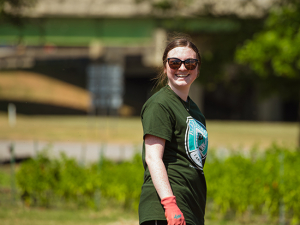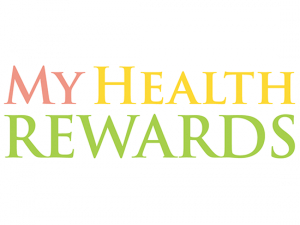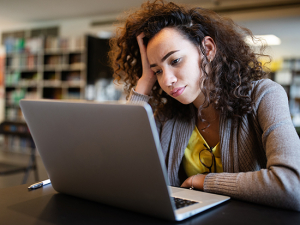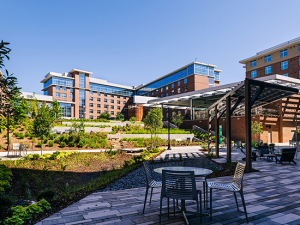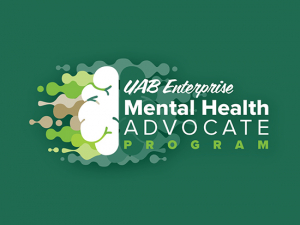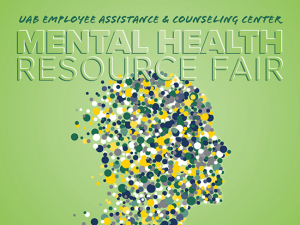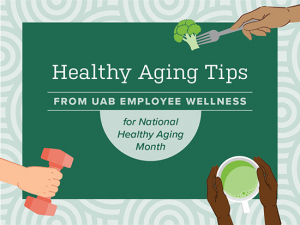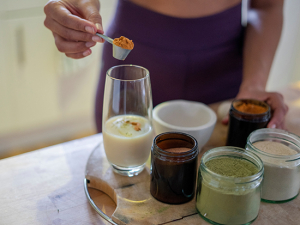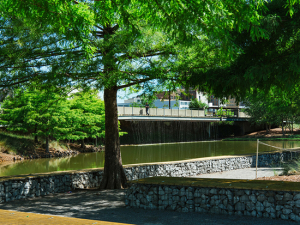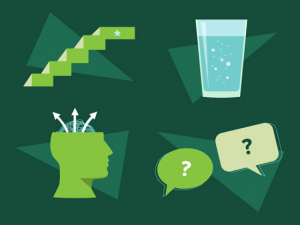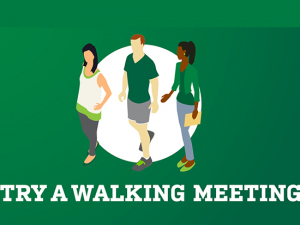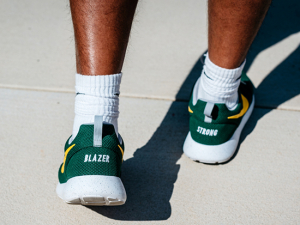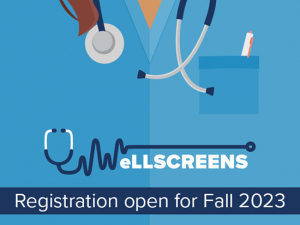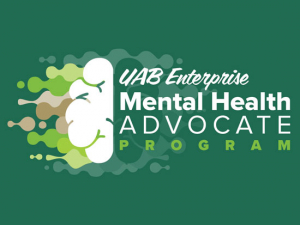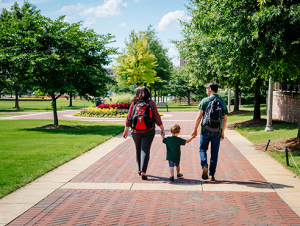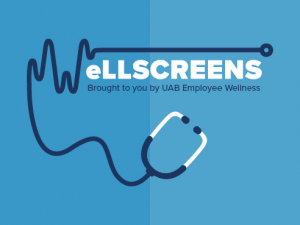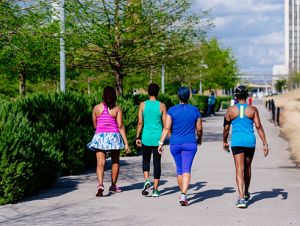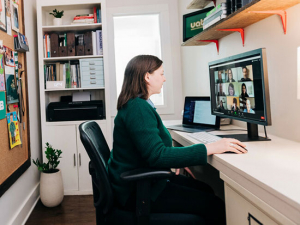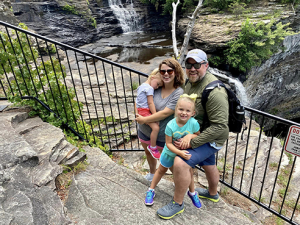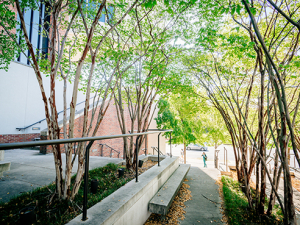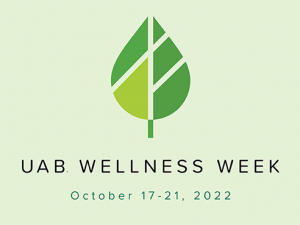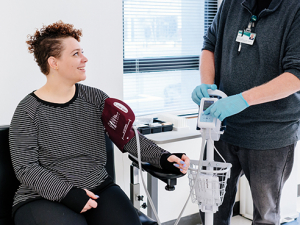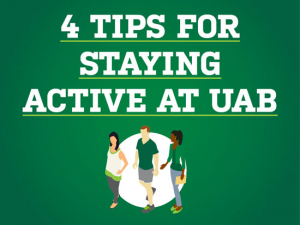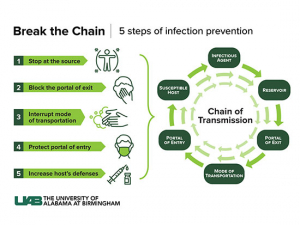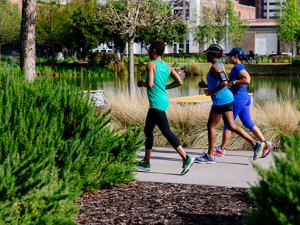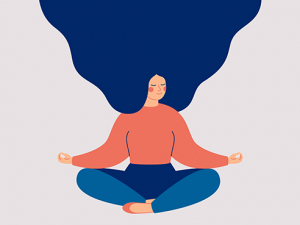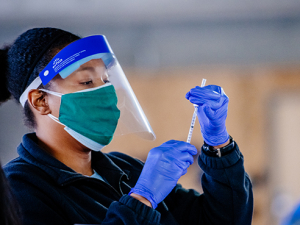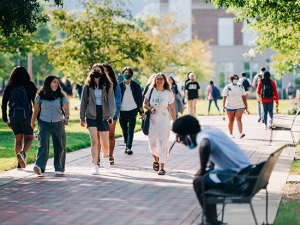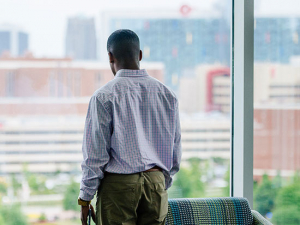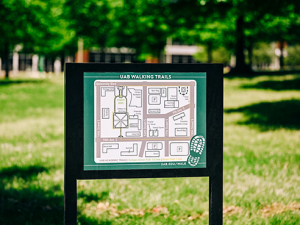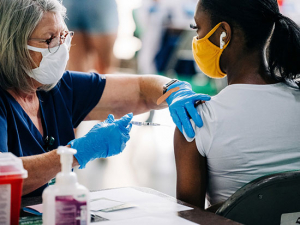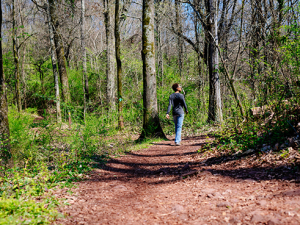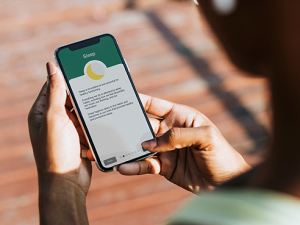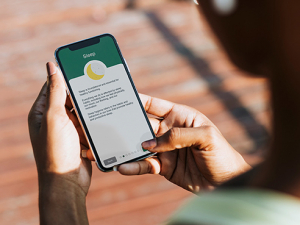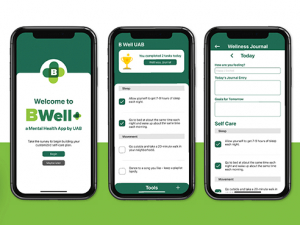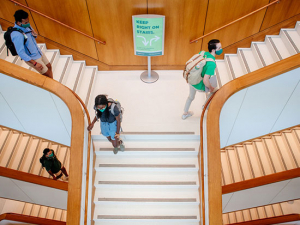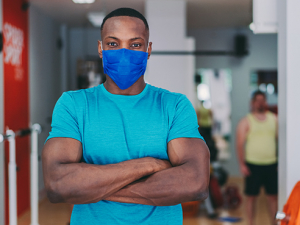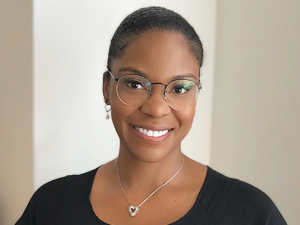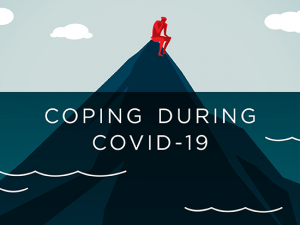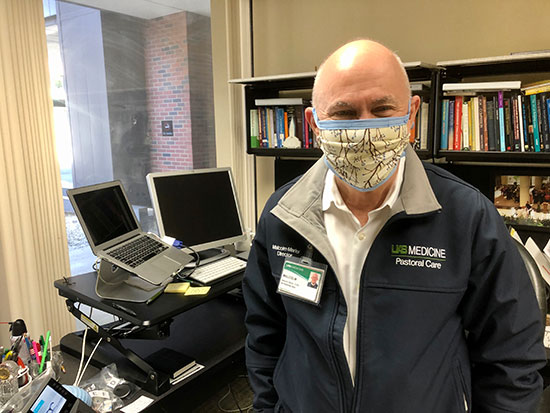 As UAB Hospital prepared for a pandemic surge in March 2020, Malcolm Marler, director of UAB Pastoral Care (above) and his chaplains provided comfort and care to patients and employees alike — even as they did most of their work by phone or video call to save precious PPE.The COVID-19 pandemic immediately brought telehealth to the forefront of patient care. In mid-March, UAB Medicine moved all clinics to an essential-care-only policy, with in-office visits converted to eMedicine telehealth appointments by video or telephone. The number of patient visits conducted remotely rose 2,000% in 2020 compared with 2019, according to the 2020 annual report from UAB eMedicine. Through Dec. 31, 2020, UAB eMedicine completed 280,668 telehealth appointments — lowering infection risk by keeping patients out of waiting rooms and providing a significant savings in both time and money spent in travel. Patients saved an average of 58.1 miles of driving per telehealth visit for a total of 263,000 travel-hours and $5.68 million in time saved based on the 2019 Alabama median hourly wage.
As UAB Hospital prepared for a pandemic surge in March 2020, Malcolm Marler, director of UAB Pastoral Care (above) and his chaplains provided comfort and care to patients and employees alike — even as they did most of their work by phone or video call to save precious PPE.The COVID-19 pandemic immediately brought telehealth to the forefront of patient care. In mid-March, UAB Medicine moved all clinics to an essential-care-only policy, with in-office visits converted to eMedicine telehealth appointments by video or telephone. The number of patient visits conducted remotely rose 2,000% in 2020 compared with 2019, according to the 2020 annual report from UAB eMedicine. Through Dec. 31, 2020, UAB eMedicine completed 280,668 telehealth appointments — lowering infection risk by keeping patients out of waiting rooms and providing a significant savings in both time and money spent in travel. Patients saved an average of 58.1 miles of driving per telehealth visit for a total of 263,000 travel-hours and $5.68 million in time saved based on the 2019 Alabama median hourly wage.
Virtual visits
Adapting to health care by video screen was at times difficult for both patients and providers. Peter King, M.D., professor and vice chair in the Department of Neurology, described his experience in launching his telehealth practice in the Reporter. “For many, it could mean the difference between getting health care or not,” he said.
| As we mark the anniversary of our COVID year, we've highlighted the events of March 2020 and the rapid acceleration of our response to the threat. You can follow the complete timeline of UAB's COVID experience at uab.edu/uabunited/our-covid-year, and read the first two stories in this Reporter series, Education methods changed overnight and UAB met the challenge head-on and When COVID-19 came calling, UAB researchers were prepared. |
In March, as personal protective equipment was scarce and a surge of COVID-19 patients was expected in UAB Hospital, the hospital’s Pastoral Care chaplains turned to phone and video calls to replace in-person visits. “Before COVID–19 our Pastoral Care team would see probably a couple of hundred patients a day,” said Malcolm Marler, director of UAB Pastoral Care. In the calm before the anticipated surge, with fewer patients in the hospital, Marler and his team found themselves supporting tired and anxious employees. “Almost always in crisis people want to be able to tell their stories,” Marler said. “You have something that has been hard for you individually and you want to share that. We want to understand, for everyone we talk with, ‘How is this experience unique to you?’ If you feel heard, there is healing in being heard.”
Expanding distance counseling
As UAB’s campus moved to limited business operations and remote learning, mental health services shifted to a primarily telehealth format. UAB’s Student Counseling Services (SCS) and Mental Health Ambassadors created special resources for students struggling to adjust, providing distance counseling from Student Counseling Services through using HIPAA-compliant Zoom and no-cost access to TAO Self Help, an online counseling resource for stress management, depression, mindfulness, recovery support and more.
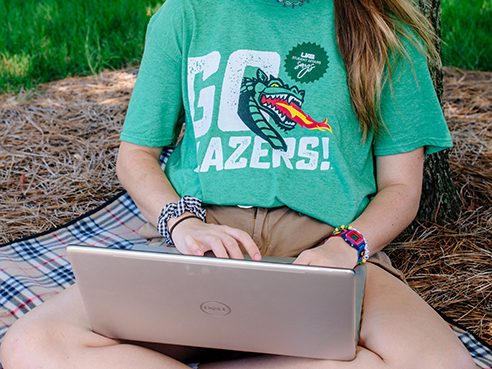 UAB's Student Counseling Services and Mental Health Ambassadors created special resources for students struggling to adjust and provided distance counseling through HIPAA-compliant Zoom sessions.“We want to provide every resource possible to them to encourage resiliency and health in the midst of the uncertainty,” Angela Stowe, Ph.D., director of Student Counseling Services and Wellness Promotion, told the UAB Reporter in March 2020.
UAB's Student Counseling Services and Mental Health Ambassadors created special resources for students struggling to adjust and provided distance counseling through HIPAA-compliant Zoom sessions.“We want to provide every resource possible to them to encourage resiliency and health in the midst of the uncertainty,” Angela Stowe, Ph.D., director of Student Counseling Services and Wellness Promotion, told the UAB Reporter in March 2020.
Through the Mental Health Ambassadors program, students learned skills to present information to peers on mental health awareness and services and hosted guided meditations, yoga lessons and Q&A sessions via Zoom.
SCS also brought on psychiatrist Blessing Falola, M.D., to give students more and better access to affordable mental health care with an integrated approach; that included a Resiliency Hub, where students could learn to recognize, reframe, reflect and reach out and a new SCS podcast, Let’s Talk About It, with SCS Counselor Herbert Wilkerson.
“We’re excited to grow our services to ensure our students have access to interpersonal, virtual face-to-face help during this time that is affordable and accessible, and by expanding our team to include Dr. Falola, we’re doing just that,” Stowe told the UAB Reporter in May 2020.
Employees have been able to access counseling services from the UAB Employee Assistance and Counseling Center (EACC) through its telemental health and distance counseling options. UAB also increased the number of free counseling sessions and life-coaching sessions available to employees and family members to 15 during the COVID-19 pandemic.
“Our increased session model will allow those who struggle with mental health concerns to have greater access to support during this unprecedented time,” EACC Director Tami Long, Ph.D., told the UAB Reporter in October 2020.
| “It’s time to face it — most of us have experienced some sort of anxiety, loneliness or even depression related to being a student in a global pandemic. This app incorporates elements of mindfulness practices in conjunction with organizational involvement and programming that encourages mental and physical wellness.” — Meagan Jenkins, a doctoral student in Graduate Biomedical Sciences and UAB Graduate Student Government secretary who helped create B Well, which helps students easily access resources on mobile devices and build a self-care plan that encourages healthy habits. |
Implementing student feedback
Inspired by lessons learned during the pandemic, students and employees in UAB IT and Student Affairs collaborated on the app B Well, which helps students easily access resources on mobile devices and encourages healthy habits. The app’s first phase, which launched in January 2021, includes an interactive, personalized and customizable self-care plan that users can build and track their healthy habits and activities each day, log a mood journal and consider goals for the following day.
“It’s time to face it — most of us have experienced some sort of anxiety, loneliness or even depression related to being a student in a global pandemic,” said Meagan Jenkins, a doctoral student in Graduate Biomedical Sciences and UAB Graduate Student Government secretary who helped create B Well. “This app incorporates elements of mindfulness practices in conjunction with organizational involvement and programming that encourages mental and physical wellness.”
Innovations in testing
In late April, the UAB Immunology Lab in the Department of Pathology began deploying testing for antibodies against SARS-CoV-2, the virus that causes COVID-19. Positive results on these blood tests enable clinicians to identify patients who have signs and symptoms of COVID-19 and are suspected to have the disease but may have had negative viral RNA testing and to identify patients who may have been infected in the past. One use for this information is in conducting epidemiologic studies to gather data on the prevalence of COVID-19 in a community. Another use: identifying potential donors of convalescent plasma to help jumpstart the immune response in people struggling with COVID-19 infection.
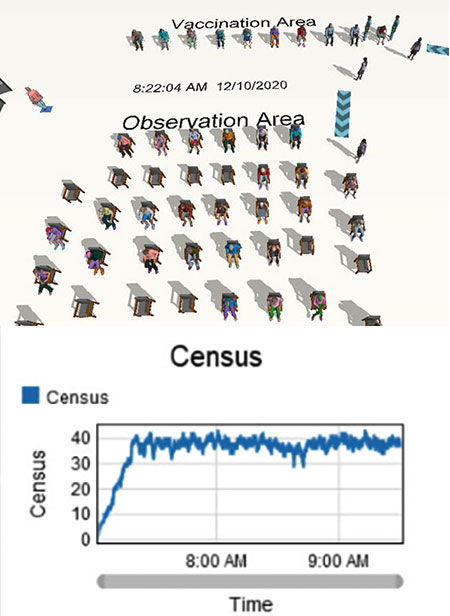 Screenshot from a Performance Engineering simulation of the COVID-19 vaccination site at Margaret Cameron Spain Auditorium on the UAB campus (top) and data output from the simulation showing number of patients at the site over time (bottom).Antibody-rich blood plasma from people who have overcome COVID-19 was seen as a particularly promising treatment possibility in the early days of the pandemic. In early May, UAB joined a clinical trial examining convalescent plasma for inpatients, with many donors coming from university employees who had themselves recovered from COVID-19.
Screenshot from a Performance Engineering simulation of the COVID-19 vaccination site at Margaret Cameron Spain Auditorium on the UAB campus (top) and data output from the simulation showing number of patients at the site over time (bottom).Antibody-rich blood plasma from people who have overcome COVID-19 was seen as a particularly promising treatment possibility in the early days of the pandemic. In early May, UAB joined a clinical trial examining convalescent plasma for inpatients, with many donors coming from university employees who had themselves recovered from COVID-19.
In the fall, UAB began studying convalescent plasma as a way to prevent COVID-19 or reduce the risks in patients with high-risk exposure. Researchers also launched two clinical trials of monoclonal antibodies — lab-created versions of anti-COVID antibodies, which have since been used extensively to treat patients at UAB Hospital. "We have all these people who are having symptoms, and we really have very little to offer them, unfortunately" before these trials began in October, said Turner Overton, M.D., director of UAB's outpatient COVID-19 clinic and professor in the Division of Infectious Diseases. "If we can get people these monoclonal antibodies early on in their illness, we can really mitigate the long-term effects of COVID-19.”
In the early months of 2021, the appearance of new COVID-19 variants in the United Kingdom, South Africa and elsewhere raised concerns about the need for regular surveillance of the types of COVID-19 infection that are prevalent in various communities. At UAB, the Fungal Reference Laboratory, directed by Sixto Leal, M.D., Ph.D., assistant professor in the Department of Pathology, has been leading the way in COVID-19 testing throughout the pandemic. In this Reporter story, Leal explained how the lab identifies variants and its plans to contribute to state-wide variant surveillance.
Beginning vaccinations
With the arrival of the first COVID-19 vaccines to campus in mid-December, health care leaders were able to implement carefully considered plans to vaccinate thousands of employees per week in Margaret Cameron Spain Auditorium. These complex logistics had a boost from the computer simulation experts in UAB Medicine’s Performance Engineering group, who conduct space and personnel utilization studies in ambulatory clinics across the health enterprise at UAB. Their modeling of the patient flow in, through and out of Spain Auditorium confirmed the viability of initial plans and suggested additional tweaks to improve efficiency.
“When a group of doctors and nurses and managers gathers to look at blueprints, they all have different views of what is going on based on paper, but no one can see anyone else’s view,” said Tee Hiett, Ph.D., a retired faculty member in the School of Health Professions and simulation expert who now works with Performance Engineering on a contract basis. “Simulation allows us to turn that 2D blueprint into a miniature movie, so everyone can have a common picture of how a new space, or process, will work.”
